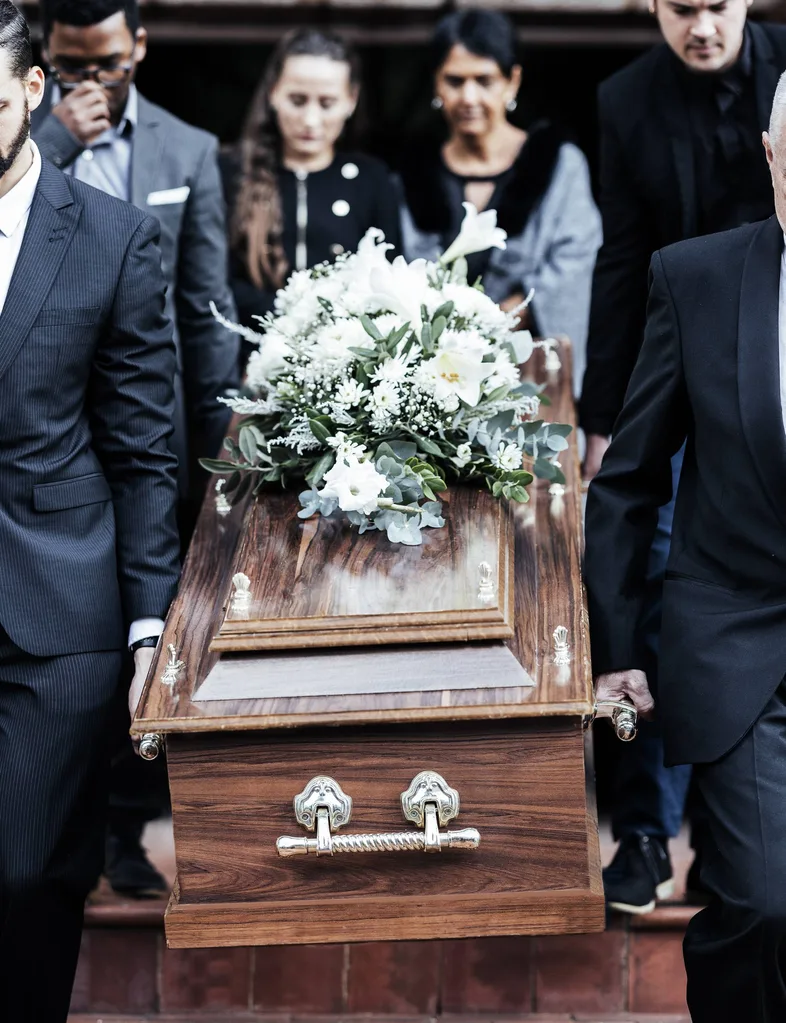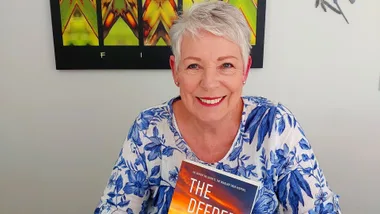Making a will was on Julia’s* to-do list for years, but she and husband Mike* just didn’t get around to it.
“We went online to do one when the kids were small,” shares Julia, a mum of three.
“But when we came to the bit about who would be their guardians if anything happened to us, we couldn’t decide between his parents or my sister. That stalled things and we never went back to it.”
Tragically, Mike died unexpectedly several years ago from surgery complications. Along with the trauma of dealing with his sudden death, Julia had the added stress of having to go through the High Court. This was to sort out his estate because there was no will. The process was delayed by the fact Mike had a stake in a property with a former business partner.

“It took months to get everything sorted and was really stressful,” Julia explains.
“It was the last thing I needed when I was grieving losing my husband and had financial worries about the future. Now I tell everyone, ‘Get a will.’”
A will is one of the best gifts you can leave your loved ones. Angela Jackson from Public Trust, New Zealand’s largest provider of estate administration services, says this.
“It clarifies your wishes and makes it easier for your family to go through the process of what happens to your assets at a time when they’re dealing with a lot of emotion,” she tells.
“It’s also peace of mind for you because you know your wishes have been clearly articulated and are legally protected.”
Making a will can be quick and easy to do – in many cases, it can be done online. It doesn’t have to be expensive either. A basic will through Public Trust costs $85. However, it can be more expensive
if your circumstances are more complex.
You also can’t just leave a letter that states your wishes, says Angela, adding it has to be done legally.
“There are a series of steps that have to be covered off to make sure it’s legally binding. For example, proving the person wasn’t under duress when they made it.”
‘My partner’s will was out of date’

Lisa’s* partner Paul* had a will when he died suddenly from a heart attack, but it hadn’t been updated since he’d made it 20 years earlier. It left his assets to his then-wife and their kids. His ex was no longer entitled to anything from him as they’d divorced, but his children were and they inherited everything.
“There was no mention of me, which has turned out to be a massive problem,” says Lisa.
That’s because Lisa contributed financially to a do-up house Paul bought after his divorce.
“He paid the mortgage, but I covered the power and the water bills,” she explains.
“I put quite a lot of money and effort into the renovation. I paid for a lot of the fixtures and fittings, like curtains.”
Lisa also gave Paul a large chunk of the money she inherited after her parents died. This was so the remaining renovation work could be finished quickly. They could then sell it to buy a home they would jointly own.
“He should have changed his will to include me, but we thought we’d do that legal stuff once we’d bought somewhere together,” she shares.
“We thought we had time.”
Sadly, Paul, who was in his late fifties, died not long afterwards. When his will left the house and other assets to his children, Lisa challenged it.
“If Paul had updated it, he would have left most of it to me, apart from small bequests to his children, who are doing well financially thanks to other inheritances they’ve received, and don’t need the money,” she shares.
“I need money and I’ve got a lot tied up in that house.”
The matter is still before the court. Lisa says when the house sells, she should at least get back the money she gave Paul, along with the financial contributions she made in the years she lived there.
“I’m entitled to more than that,” she declares.
“Me paying the bills enabled him to keep the house during times when he struggled to pay the mortgage and the renovation costs, but it’s his kids who will reap the benefits. That’s not fair.”
Angela says, “This shows why it’s so important to update your will. We often see cases at Public Trust where the will was done many years ago and the person’s life has changed a lot in that time.
“Please don’t just put your will in a bottom drawer and forget about it. Pull it out regularly and make sure it is still exactly what you want. We recommend also updating it when you’ve had a significant event in your life, like buying or selling a house, getting married or divorced, or having a child. It should align with what’s important to you and that can change.”
*Names have been changed.
When can’t a will be done online?

In some cases, you will need to see an expert face-to-face.
“If there are some complexities, like a blended family or business ownership, then you should get professional advice,” explains Angela.
“That creates a need to set the will out in a very structured way.”
Similarly, if there are other legal agreements in place, such as a family trust or pre-nuptial, it’s important to make sure you’ve protected yourself so your estate is distributed how you want.
What is probate?

It’s part of the estate administration process. It involves applying to the High Court for a will to be recognised and approved legally. It gives someone the authority to administer an estate – paying bills, closing accounts and distributing assets.
It’s required if you die with more than $40,000 in assets and can take a couple of months to obtain.
‘I was left out of a will’

Anna* was 12 when her aunt Sally*, who was divorced and childless, first told her she planned on leaving everything to her when she died.
“My aunt couldn’t have kids, so I was her surrogate child,” she says. “We were very close and she always said I’d inherit whatever she owned.”
When Anna was young, Sally was wealthy, as she’d come out of her first marriage with a substantial payout. However, that dwindled dramatically after a business that Sally and her second husband Peter owned failed. The couple struggled financially.
Tells Anna, “What was frustrating was that they could have freed up capital by selling their house, which Sally’s money had paid for, and downsizing. But Peter refused because he loved the garden.”
Sally wanted to sell and told Anna she’d do so once Peter, who was nine years her senior and suffering from several health conditions, passed away. But to everyone’s shock, she died first from an unexpected illness. Her will said her assets should go to her husband, unless he’d already died, when they would pass to Anna.
“She could have stipulated that half of her estate should go to me if she died before him, but she didn’t,” shares Anna.
“I don’t think she considered the possibility she could go first.”
Did you know? 50 percent of adults don’t have a will.
Peter died 18 months after Sally and his will named his children from his first marriage as his beneficiaries. Anna hasn’t inherited anything other than a few personal items. She hasn’t contested it and says there’s no point dwelling on what could have been.
“I was quite angry at Peter – he knew full well Sally wanted me to inherit her share of their joint property,” she recalls.
“I was disappointed in her for not spelling that out in her will. “The money would have been very helpful in these tough times, but I try to focus on the fact I had a wonderful relationship with my aunt and not that she didn’t fulfil her promise of leaving everything to me. Money isn’t everything.”
Angela clarifies, “This is a good example of never assuming anything and making sure you are clear about what you want. If the aunt wanted Anna to inherit some or all of her assets, her wishes should have been in her will. “We do have the Testamentary Promises Act, where if you can prove that someone has made a promise to leave something to you, you may be able to challenge the will. If you can produce documents which show this promise was made, such as a letter or an email, or even a birthday card, that can help you to make a claim.”
*Names have been changed.
What happens if I die without a will?

This is known as intestacy or dying intestate. If you don’t own property and your assets are less than $40,000, you’re considered to have a small estate. This can be managed and distributed by your next of kin.
However, they can’t do this if your assets, including property, cars, savings, shares and KiwiSaver, total more than $40,000. In that case, you have to decide who will be the administrator of the estate. You must then obtain court authority for them to carry out the role.
They must follow the law when it comes to distributing assets. It is quite specific about who gets what based on which family members outlive you. For example, if you don’t have a partner or children but are survived by your parents, the estate will go to them. This applies even if you fell out years ago. If no next of kin can be found, then everything will be passed on to the government.
If you die intestate, the process of sorting out your estate can take from six months to two years.




